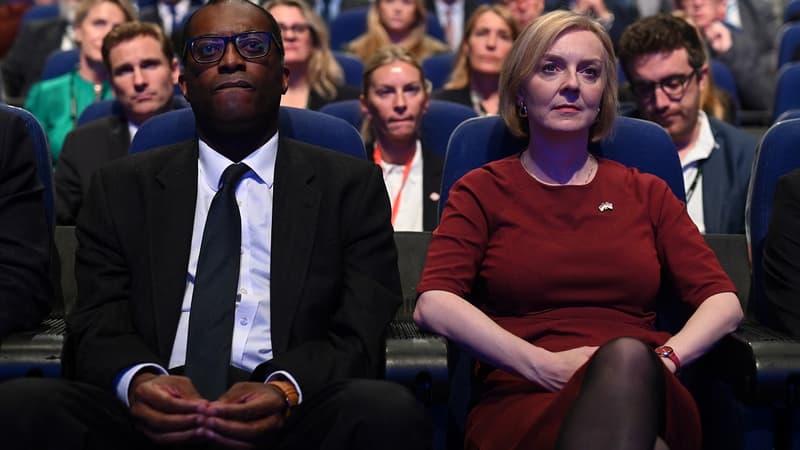44 days and then it’s gone. Weakened for several days, British Prime Minister Liz Truss announced her resignation on Thursday. Arriving on September 5 at number 10 Downing Street, Boris Johnson’s successor thus ends the shortest term in the history of the United Kingdom.
Liz Truss’s problems began on September 23. That day, Finance Minister Kwasi Kwarteng announced a “mini-budget” to boost growth and try to curb inflation, which was hovering around 10% in the country. Among the main measures of this plan: the freezing of energy prices for households, the payment of half of the energy bills of companies, the reduction of taxes on high incomes, the reduction of security contributions social, the reduction of the tax on real estate transactions…
The problem is that this particularly ambitious cocktail of measures does not have clear financing. Estimated between 100,000 and 200,000 million pounds, its cost has forced the government debt management service to announce that it will increase its debt plan for the current year by around 45% to reach 234,100 million pounds.
What to sow panic in the financial markets. Three days after Kwasi Kwarteng spoke, the pound fell to a record low against the dollar, while UK rates soared to levels not seen since the financial crisis, driving up the cost of borrowing for the government. This turbulence also had consequences in the property market with more expensive repayments for many Britons who borrowed at variable rates.
Bank of England emergency response
To top it off, the IMF, in a rare press release, said on September 28 that it was “carefully” monitoring the situation in the UK. “Given the high inflationary pressures in a number of countries, including the UK, we do not recommend any significant unfunded fiscal action as it is important that fiscal policy does not get in the way of monetary policy,” the monetary institution said.
The financial storm is such that the Bank of England is forced to intervene, urgently, in particular to save pension funds (including those that manage British pensions) on the verge of collapse. On Wednesday, September 28, the central bank announces a program to repurchase long-term Treasury bills for up to 65 billion pounds. “The market movement has sharpened since yesterday (Tuesday) and especially affects long-term debt. If this market dysfunction continues or worsens, it would pose a real risk to UK financial stability.
Warning again about “a significant risk to the financial stability of the United Kingdom”. The institution steps in for a second time two weeks later, raising the maximum size of its daily trades to £10bn and expanding its action to inflation-linked notes, which make up about a third of UK Treasury notes.
Turn around
Liz Truss and her Chancellor of the Exchequer, Kwasi Kwarteng, initially refusing to back down, refer to their debt reduction plan, which was brought forward to October 31 in an attempt to calm markets. In vain.
On October 3, during the Conservative party congress, marked by dissent and tension, the Prime Minister and her Minister of Finance were finally forced to take a first turn: they gave up the elimination of the highest tax bracket. During this meeting, Liz Truss tries again to reassure the skeptics of her party like the markets: “I understood, I listened”, she assures.
But nothing helps. The Prime Minister continues to see her popularity plummet. She to the point of having to fire Kwasi Kwarteng on October 14, who is replaced by Jeremy Hunt who will announce three days later the cancellation of almost all of Liz Truss’s economic program, to which she says “sorry”.
Despite this setback, the pressure had become unbearable for the tenant of 10 Downing Street who announced on Thursday that she would not be able to “carry out the mandate” for which she had been elected.
Source: BFM TV


